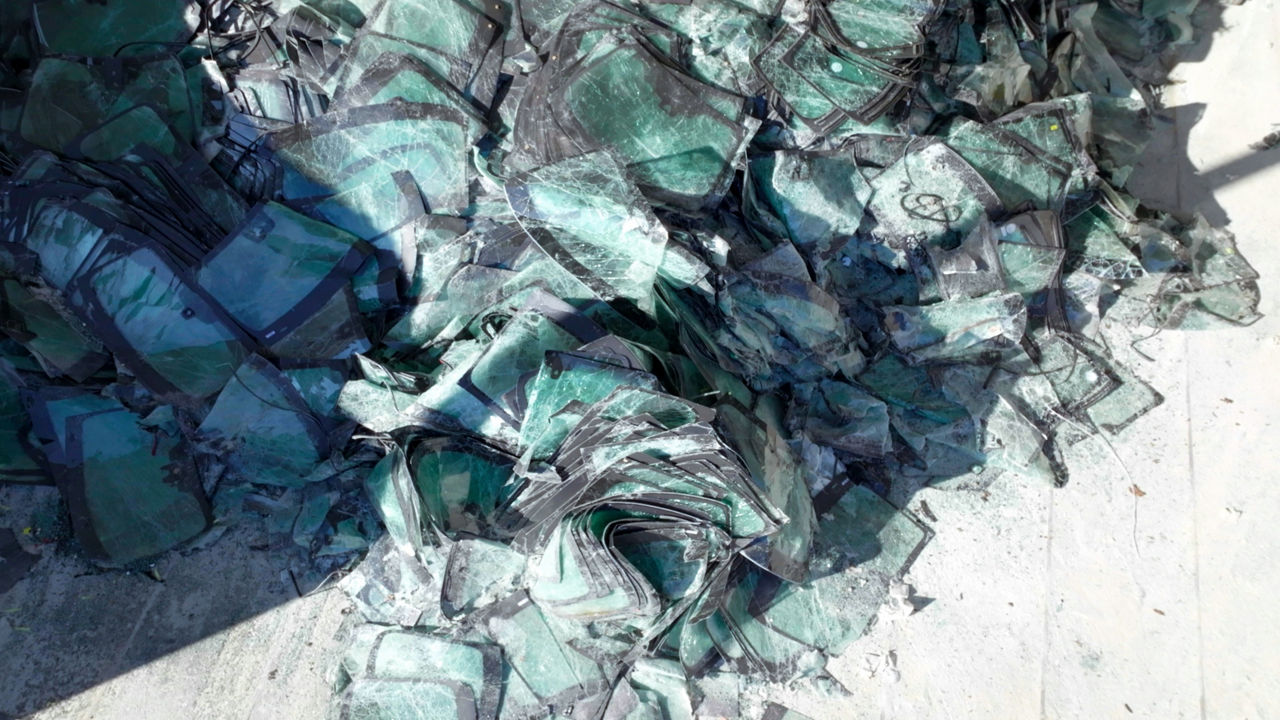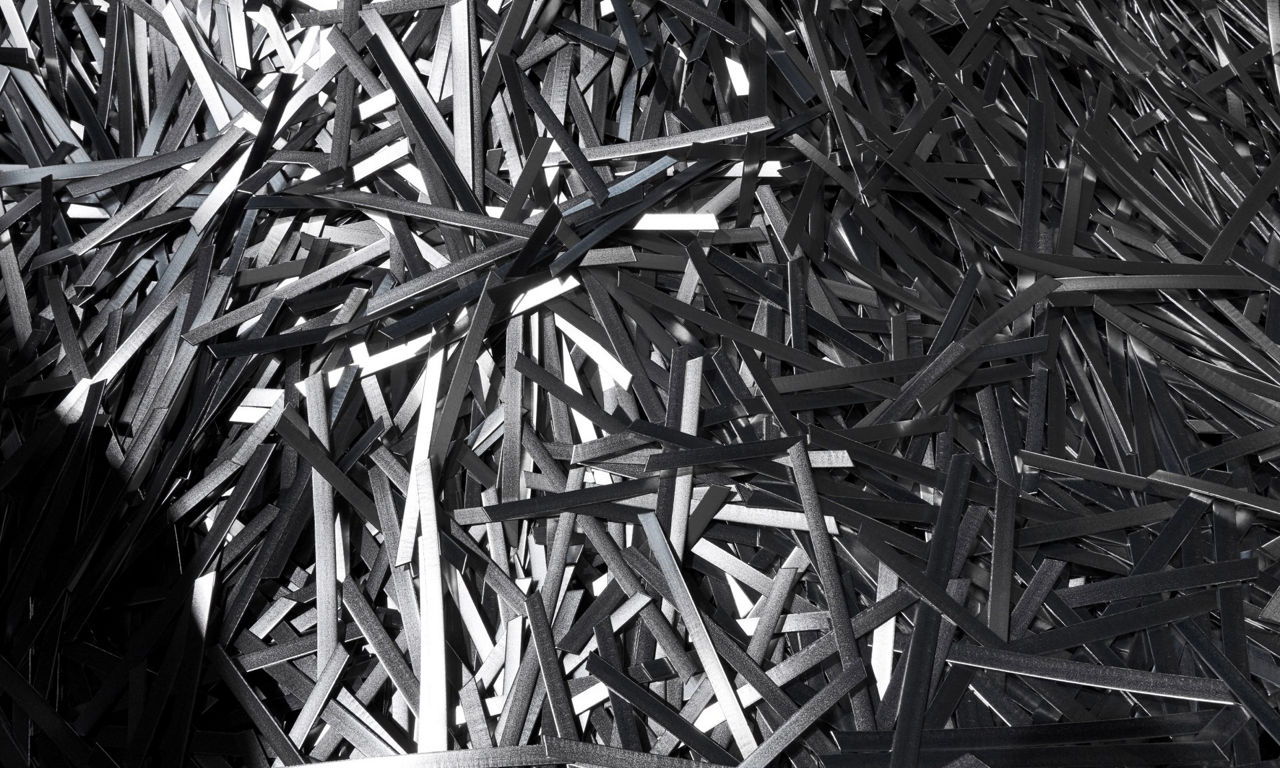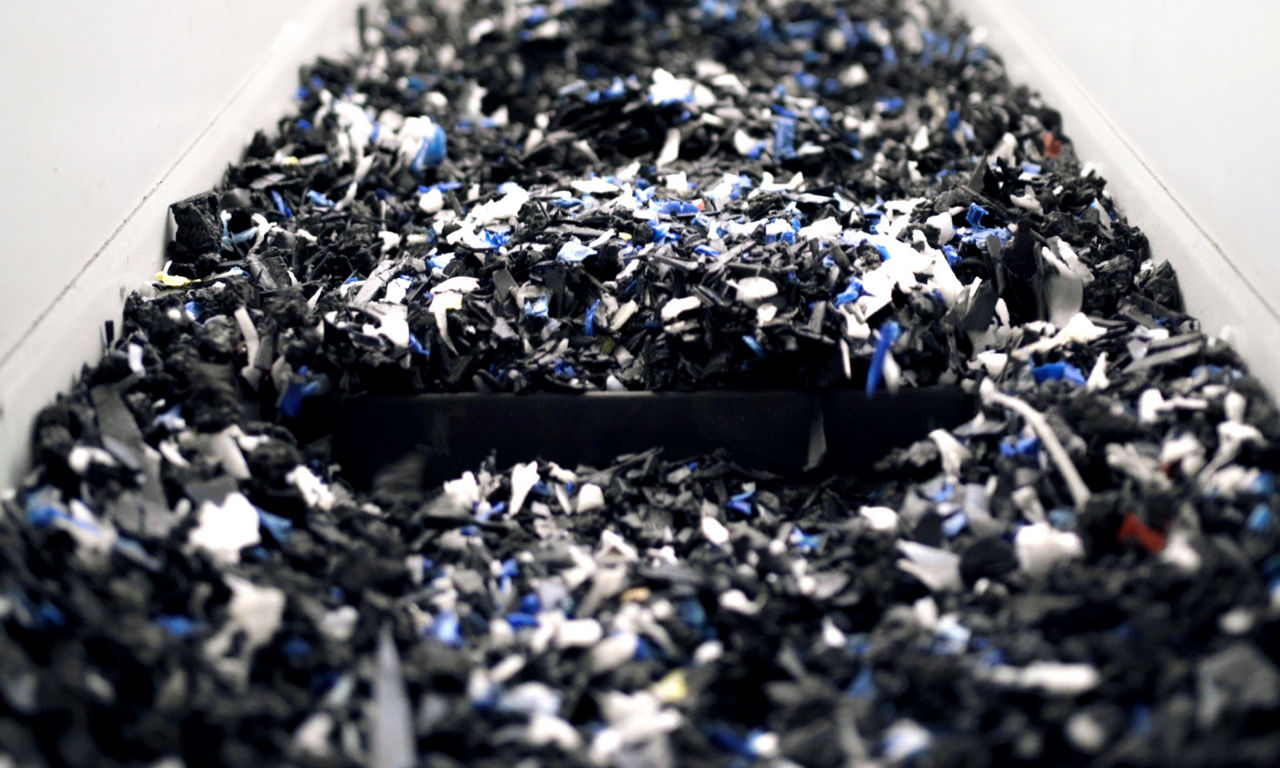The MaterialLoop Project: Turning Old Into New
missing translation: fa.article-intro.reading-time – Copy: Nadia Riaz-Ahmed - Photo: KieferWorX, AUDI AG, KG Media Factory – 05/21/2023
missing translation: fa.article-intro.reading-time – Copy: Nadia Riaz-Ahmed - Photo: KieferWorX, AUDI AG, KG Media Factory – 05/21/2023

Glass recycling: Faulty car windows that can no longer be repaired are broken into small pieces and sorted. The glass granules obtained in the process are melted down, processed into flat glass, and turned into a new car window for the Audi Q4 e-tron.
Glass recycling: Faulty car windows that can no longer be repaired are broken into small pieces and sorted. The glass granules obtained in the process are melted down, processed into flat glass, and turned into a new car window for the Audi Q4 e-tron.
Circularity is a hot topic right now. It is set to increasingly replace the traditional, linear economic model that relies on large quantities of easily accessible raw materials and affordable energy. Audi aims to advance the circular economy concept to preserve the value of products and materials for as long as possible.
In this sense, taking responsibility starts with enabling longevity and reparability of vehicles – only as a final step does the best possible recycling solution come into play. Once a vehicle reaches the end of its life cycle, the raw materials used are to be fed back into the production process as comprehensively as possible. To this date, only a few of the materials used in the production of new vehicles are obtained from old vehicles. Steel, for example, usually ends up as structural steel after the end-of-life vehicle recycling process. Audi wants to change that and, in the future, feed secondary materials derived from old vehicles back into automotive production. They aim to prevent as far as possible downcycling, a recycling process where the recycled materials are of lower quality than the original.

After dismantling, the remaining vehicle bodies were shredded, and together with the partner companies involved the scraps were separated into different material groups such as steel, aluminium, and plastic.
After dismantling, the remaining vehicle bodies were shredded, and together with the partner companies involved the scraps were separated into different material groups such as steel, aluminium, and plastic.
Audi partnered with 15 organisations from industry and research and launched the MaterialLoop project in October 2022 to run in-depth tests on a total of 100 vehicles by the end of April 2023. They focus on recyclable materials with further potential, the development of new technical processes and recycling methods that are already economically and ecologically feasible today. Their aim is to close more material loops for recyclable materials such as steel, aluminium, plastics, or glass within the automotive industry in the future and to give a “second life” to resources. Although the pilot project is still underway, the project participants have already started to feed materials back into automotive production. Much of the steel recycled within the project can be used in the production of new models. Audi intends to use a large part of the steel recycled within the MaterialLoop project to produce up to 15,000 interior door parts of the Audi A4 series.
When it comes to plastic and glass recycling, the project has got one step closer to making the basic concept tangible for customers: glass granules from damaged car windows that can no longer be repaired are melted down, processed into flat glass, and turned into a new car window for the Audi Q4 e-tron. Mixed automotive plastic waste is used in the production of the seatbelt buckle covers for the new Audi Q8 e-tron. What is crucial: the use of secondary materials must not conflict with the high-quality standards.
The findings from MaterialLoop are to enable material loops for automotive use wherever it is technically possible and makes economic and ecological sense. The project is part of Audi’s circular economy strategy and provides valuable findings for implementation in practice.

Plastic recycling: Plastic parts that can no longer be repaired are shredded. The plastic granules obtained in the process are used for the production of the Audi Q8 e-tron seat belt buckle covers.
Plastic recycling: Plastic parts that can no longer be repaired are shredded. The plastic granules obtained in the process are used for the production of the Audi Q8 e-tron seat belt buckle covers.